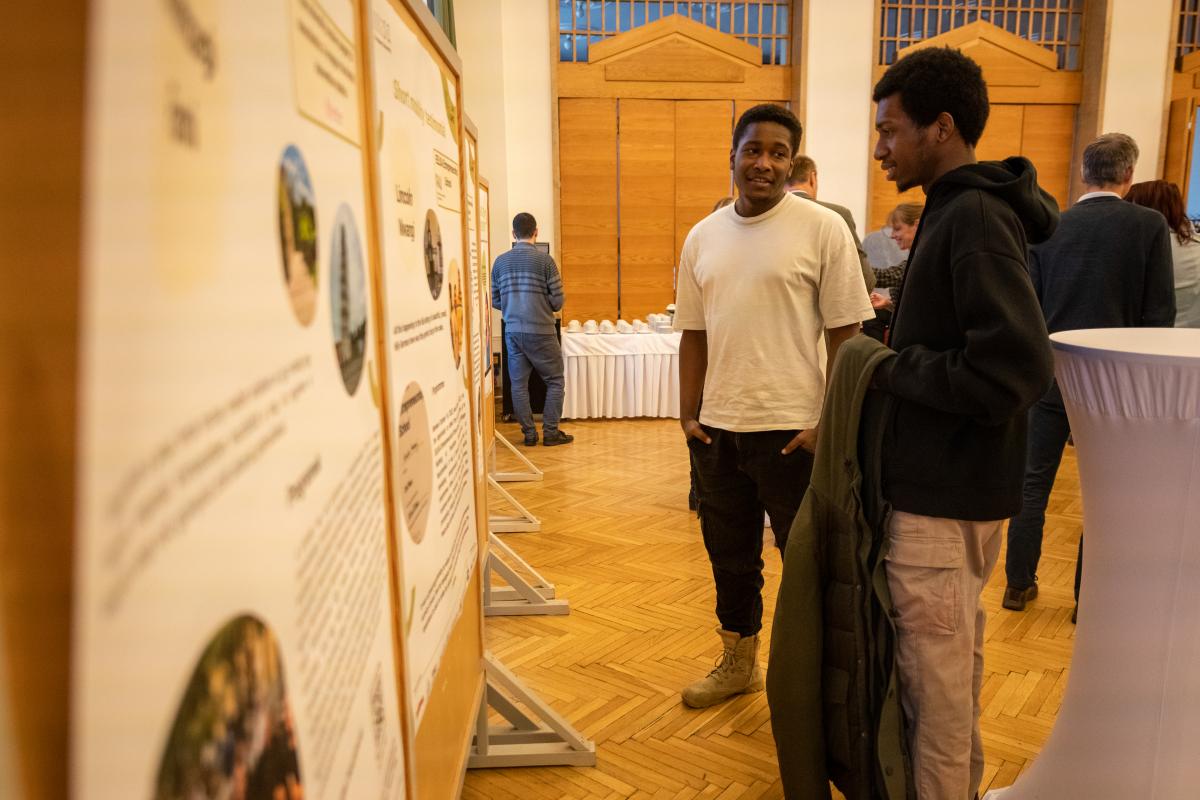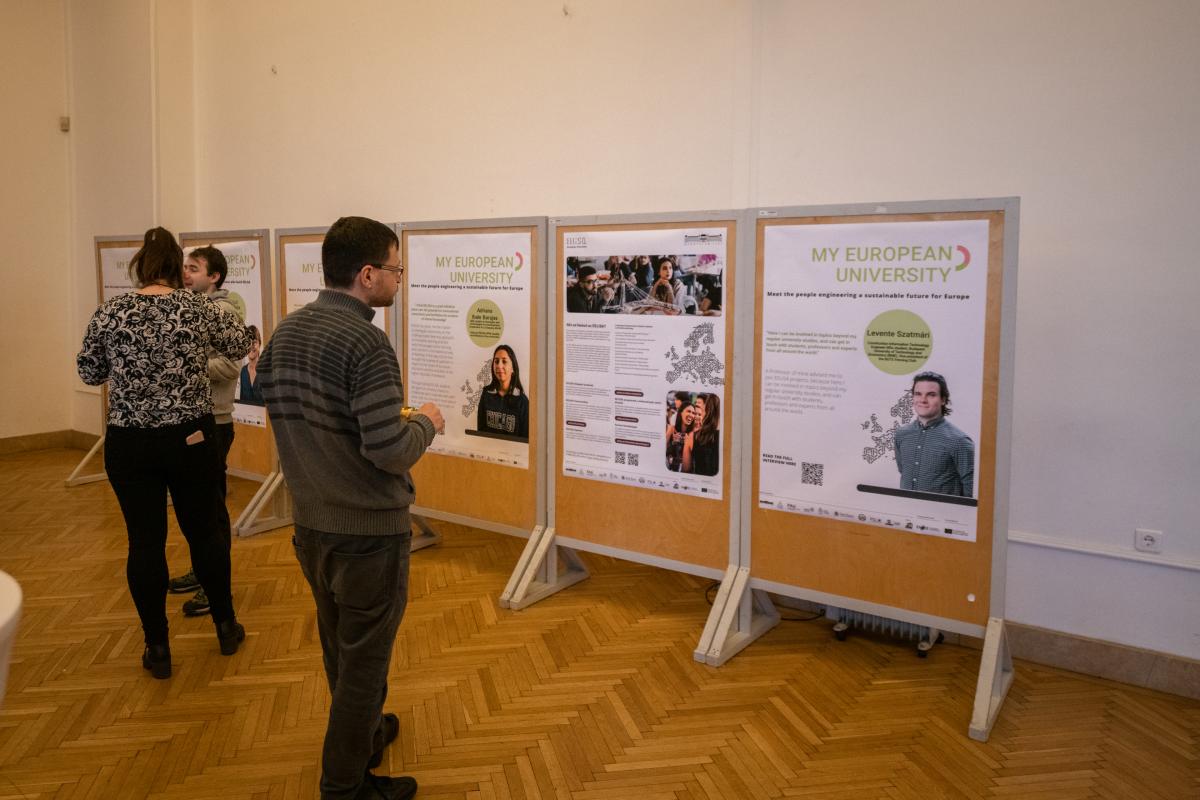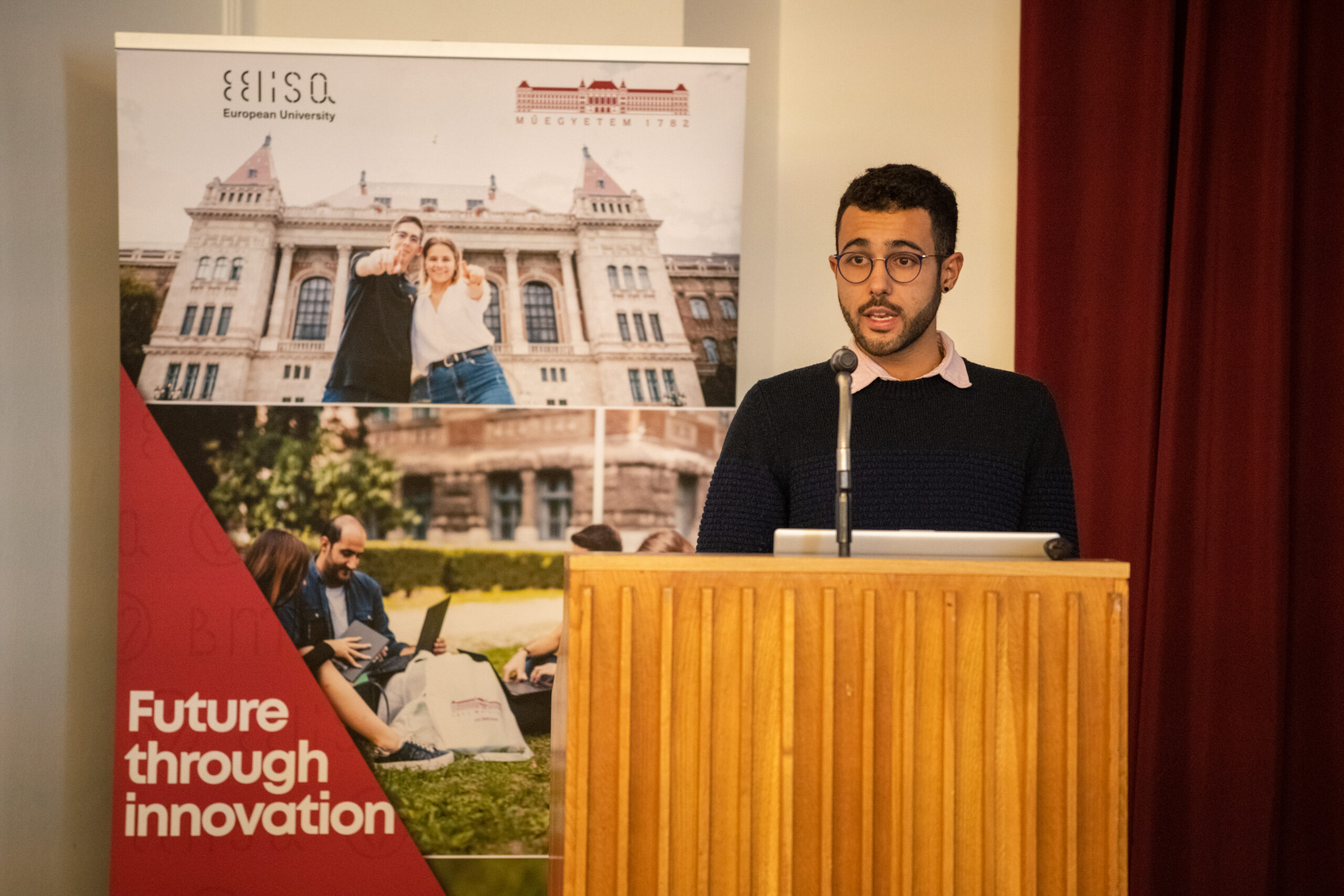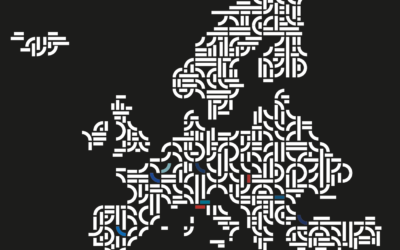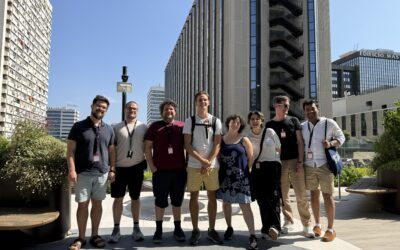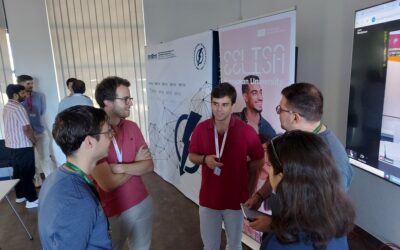EELISA, the alliance of 10 leading European technology universities, will continue with the support of the EU. The kick-off meeting in December was about BME’s achievements and plans.
Participants of the project kick-off meeting included Dale Martin, president of EELISA, Tibor Czigány, rector, Emília Koczka, née Csiszár, vice-rector for international affairs and BME’s researchers and students involved in the EELISA projects. László Gergely Vigh, director of the Directorate of Foreign Language Programmes, joined the meeting online. The event was moderated by Sarolta Tóvölgyi, assistant professor of the Department of Ergonomics and Psychology, BME’s Faculty of Economic and Social Sciences.
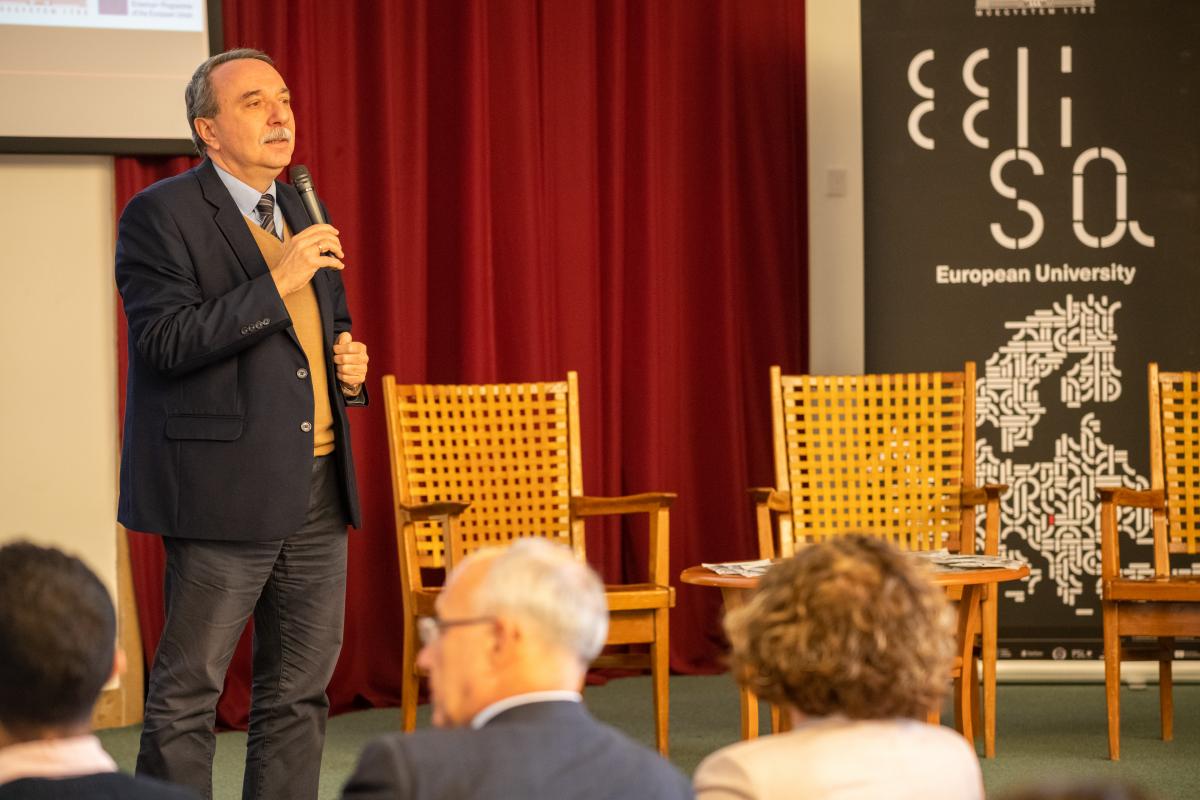
Tibor Czigány, rector, thanked the colleagues for their contribution to EELISA’s success and also set new goals: ‘Our current mission is to introduce EELISA to even more of our colleagues, students and secondary school students as well. We should tell students who are about to start higher education that they do not need to choose a university abroad as BME is a member of EELISA and, as a result, they can spend a term in one of Europe’s best technology universities and can work in various EELISA communities.’
Dale Martin, president of EELISA, then addressed the audience. ‘Thanks to our fantastic shared achievements in the first phase, we, EELISA were granted the opportunity to move onto the second phase. My most important message is that EELISA is more than just an exciting, excellent project. It aims to transform the partner universities so that, as a transformative force, we can accomplish our vision contributing to the growth of inclusive, sustainable, digital societies!’ concluded Dale Martin, EELISA’s president, his welcome speech.
The next section of the event included introductions from BME established EELISA communities, which also shared their experiences from their past activities and presented their ideas for the EELISA 2.0 project.
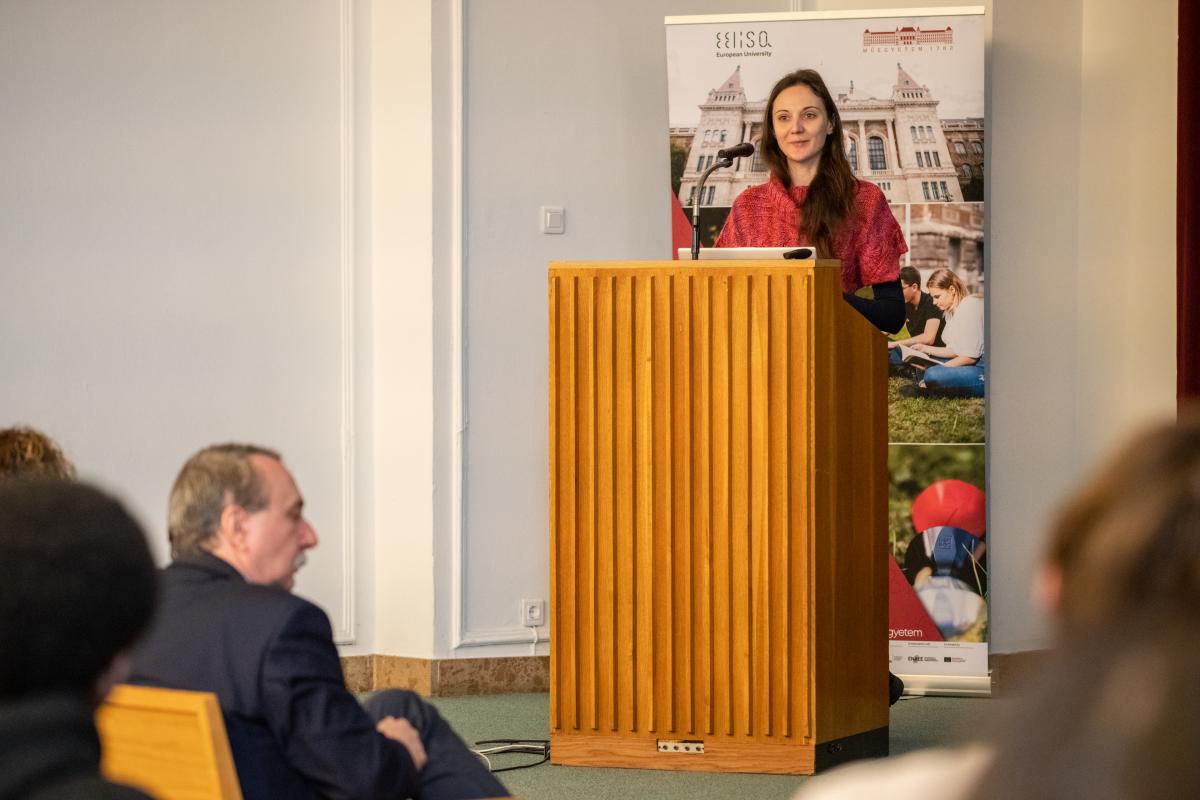
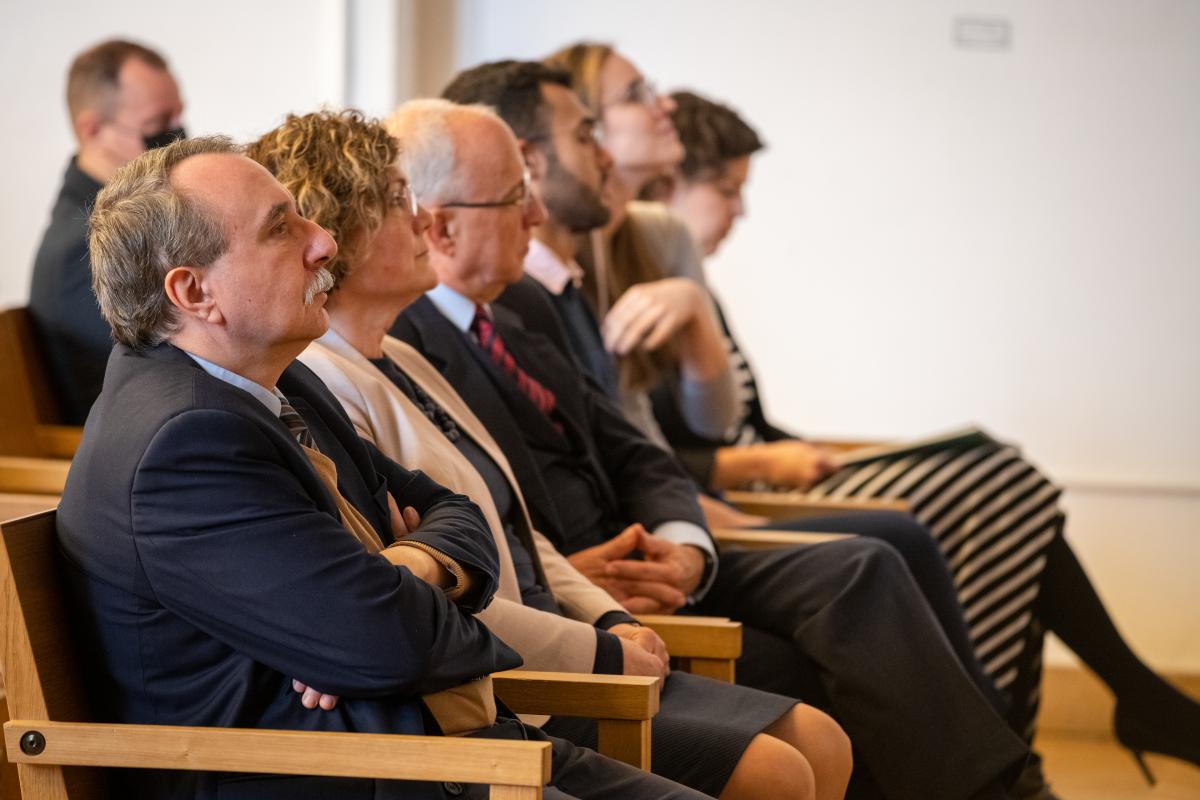
In this section, Ágnes Urbin, assistant professor of the Department of Mechatronics, Optics and Mechanical Engineering Informatics, Faculty of Mechanical Engineering, held the first presentation entitled „Vision and Engineering Community – the first year”. The community aims to emphasize the importance of the visual aspects of human-centered design and to build an international network for training the future engineers to design products and systems with knowledge and consideration of the fundamentals and latest scientific advances of visual sciences. ‘Our goal is to strengthen interdisciplinary cooperation, including, for example, the fields of lighting, colorimetry, ophthalmology, visual ergonomics, industrial design, architecture and the arts,’ said Ágnes Urbin.
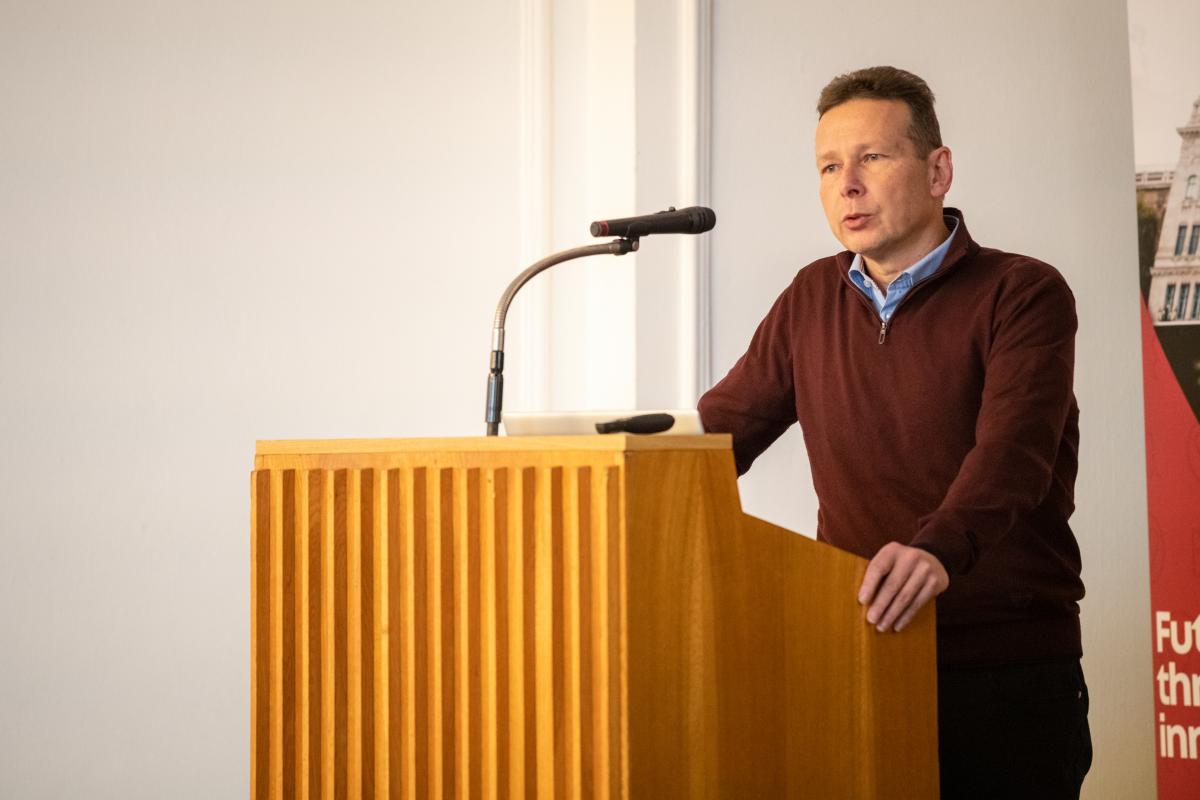
Next, Gyula Zilahy, university professor of the Department of Environmental Economics and Sustainability, Faculty of Economic and Social Sciences, based on his three decades of experience in the field, underlined the importance of the interdisciplinary nature of sustainable development. Their community, „YRIS”, aims to support doctoral students and young postdoctoral researchers on their path to high-quality research and publication. ‘The target group includes all young researchers from EELISA partner universities with diverse backgrounds (including but not limited to engineering, management, economics and natural sciences) who are conducting or open to research at the intersection of environmental, social and economic areas of sustainable development,’ emphasized Gyula Zilahy.
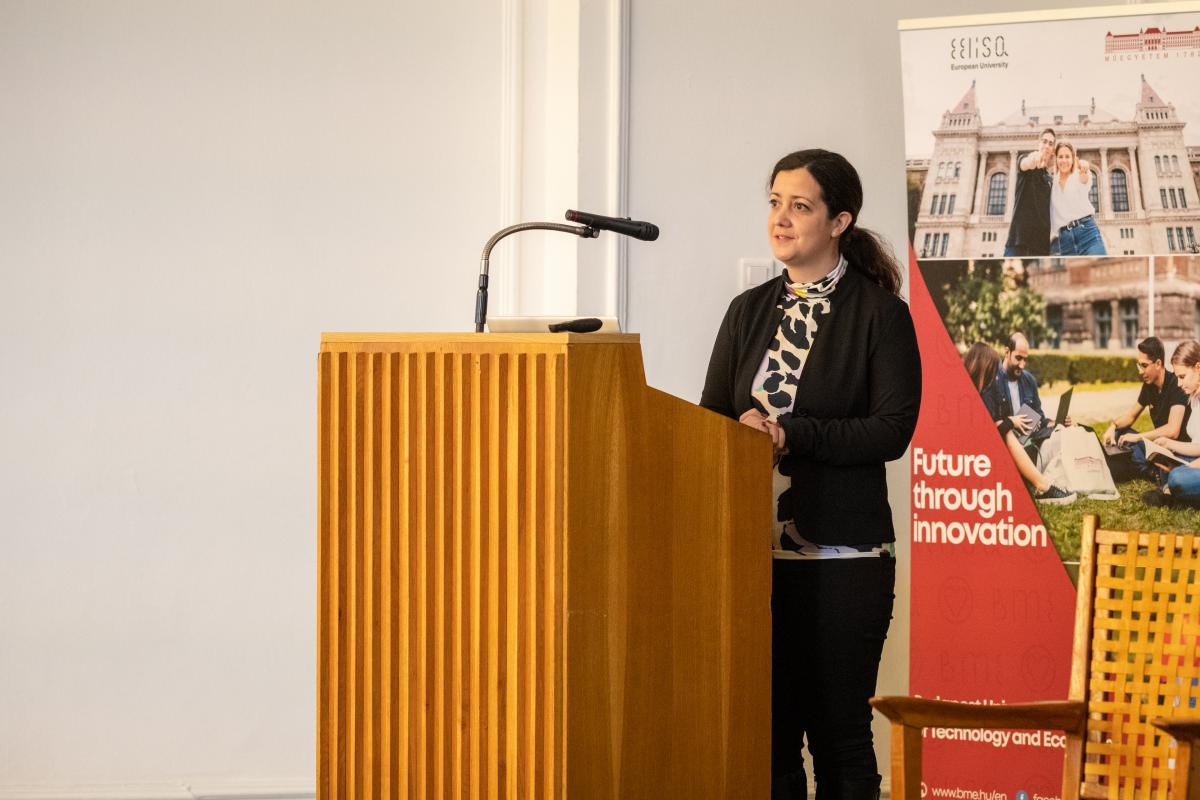
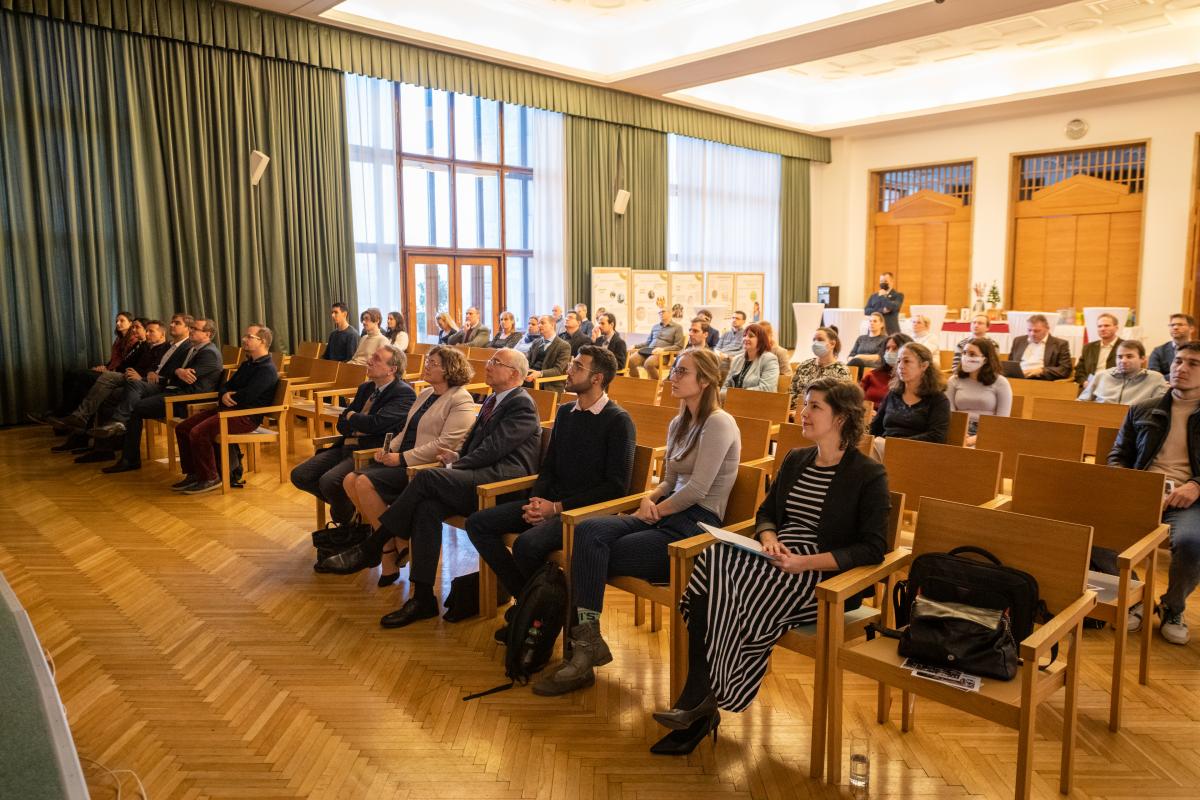
Mária Szalma, née Csete, vice-dean of International Affairs, Faculty of Economic and Social Sciences, habil. associate professor, gave a brief report on a year’s work of “SusCo = Sustainable Competences Interdisciplinarity for Sustainable Competences in Engineering Education”. In their work, they sought to find the answers what interdisciplinary responses are given to complex challenges and which skills are considered important by EELISA partners. They compared universities’ sustainability programmes, relevant curricula and training practices, in particular on their methods of sustainability skills. Interdisciplinary thinking together is one of the alliance’s key objectives. About the working method, she shared that they held online workshops every 2 or 3 weeks and they also had two face-to-face meetings last year.
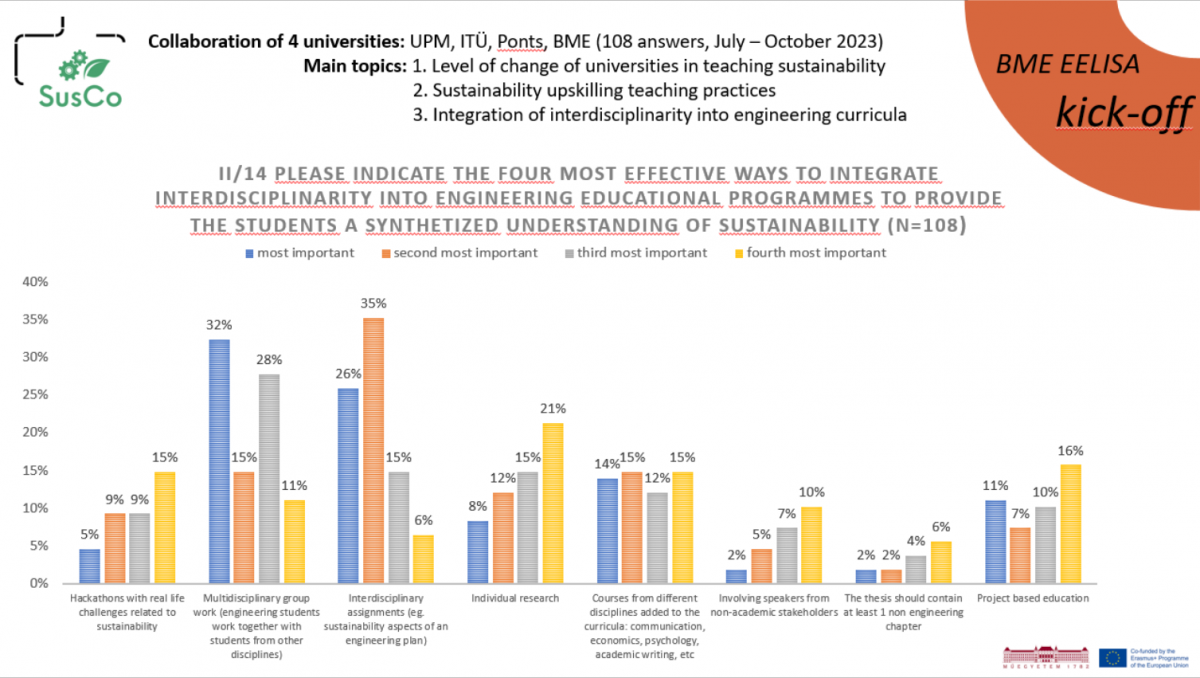
A proposal recently submitted by EELISA Connect community has been selected for funding. The workshop „Engineering a Sustainable Future: Bridging Minds, Building Skills” will take place in March 2024.

The first student presentation was given by Anna Panna Nagyapáti. Studying abroad with EELISA has not only given her professional experience, extra knowledge and great experiences but has also made her much more independent, more confident in English and she is already able to take some subjects in English at home. Anna encouraged everyone not to miss the opportunities offered by EELISA. Yan Medeiros da Cruz, a technical engineering student, who submitted several applications, shared his experiences in Romania, where, in addition to experiences, he also made new friends. Like Anna, he also promoted other students to apply for the opportunities for the training programmes abroad.
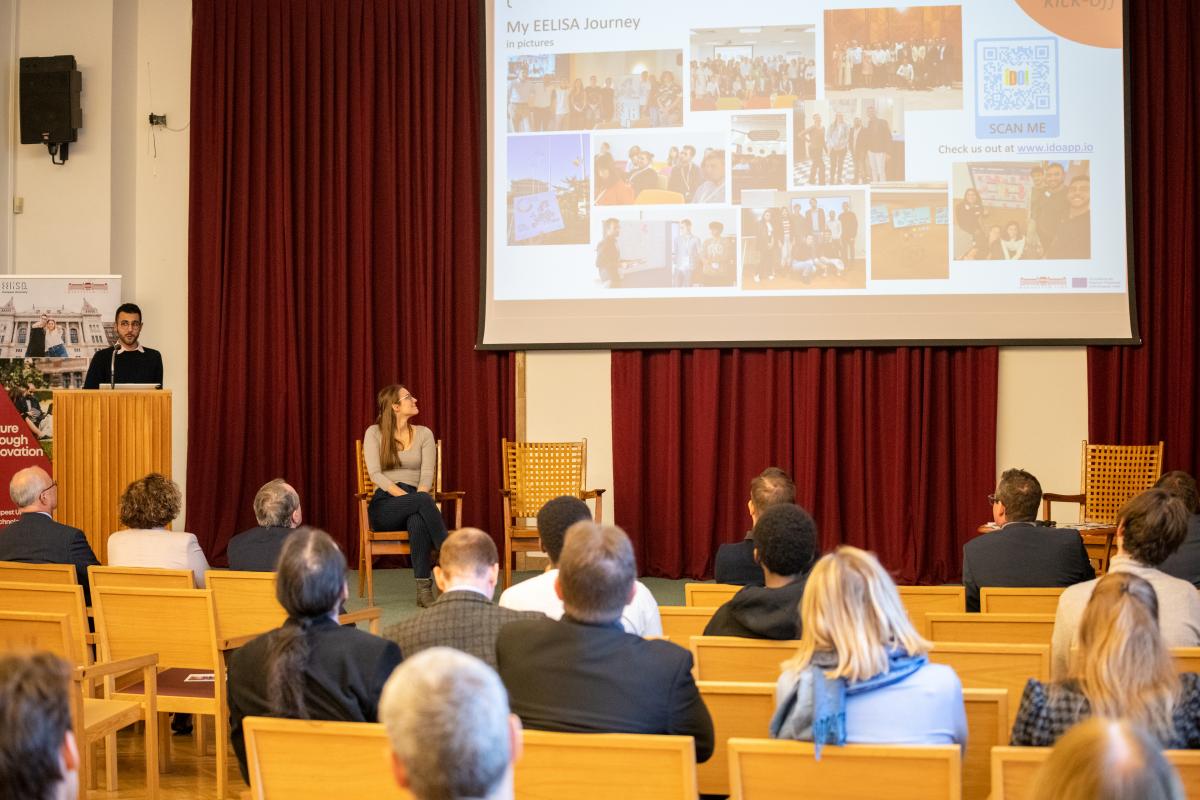
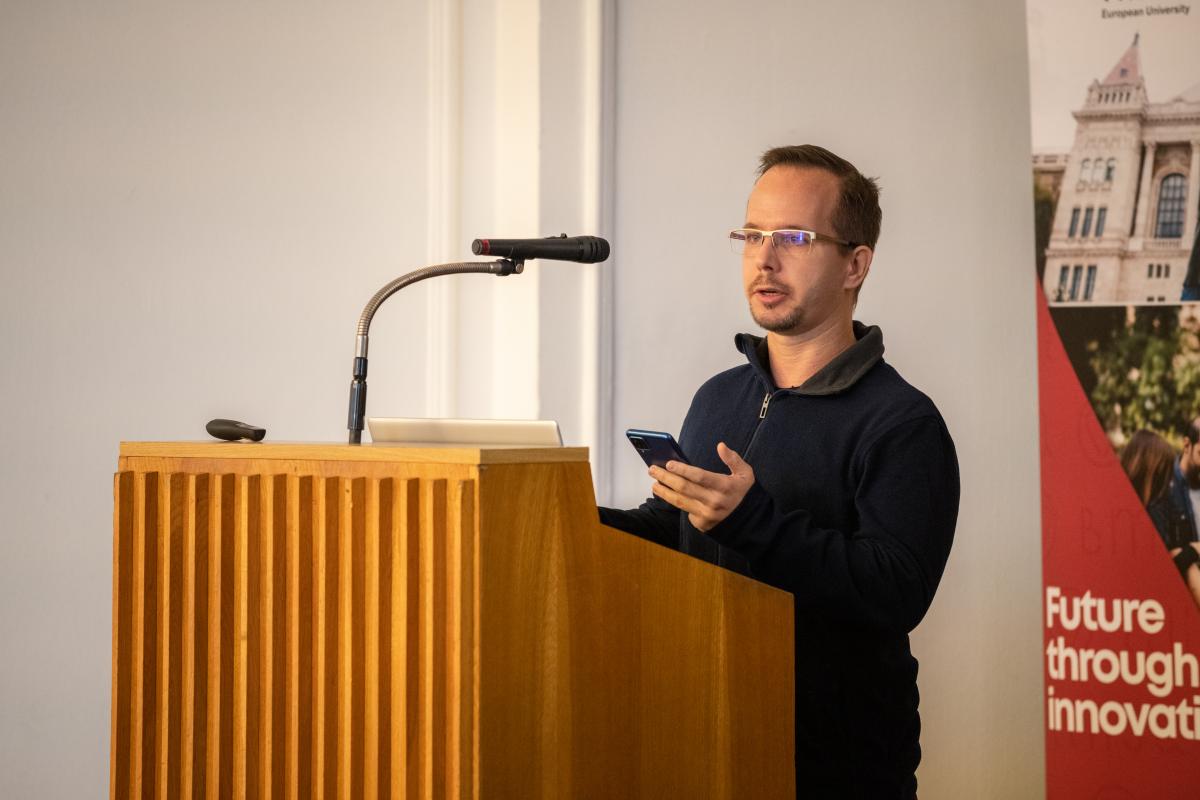
BME has been active in several communities. Domokos Esztergár-Kiss, senior research fellow of the Department of Transport, Technology and Economics, Faculty of Transportation Engineering and Vehicle Engineering, spoke about their work in the “EELISA on the move” community. Since 2021, the group has been working on urban mobility issues in a multidisciplinary environment, seeking for solutions to existing problems. At their workshop held in Budapest, for example, the participants elaborated possible solutions for the use of the Danube embankment. ‘Our proposal submitted to HORIZON on “15-Minute Cities” has been selected for funding, which means that studies will be carried out in Hungary as well. This community has not only a past but also a future,’ said Domokos Esztergár-Kiss.
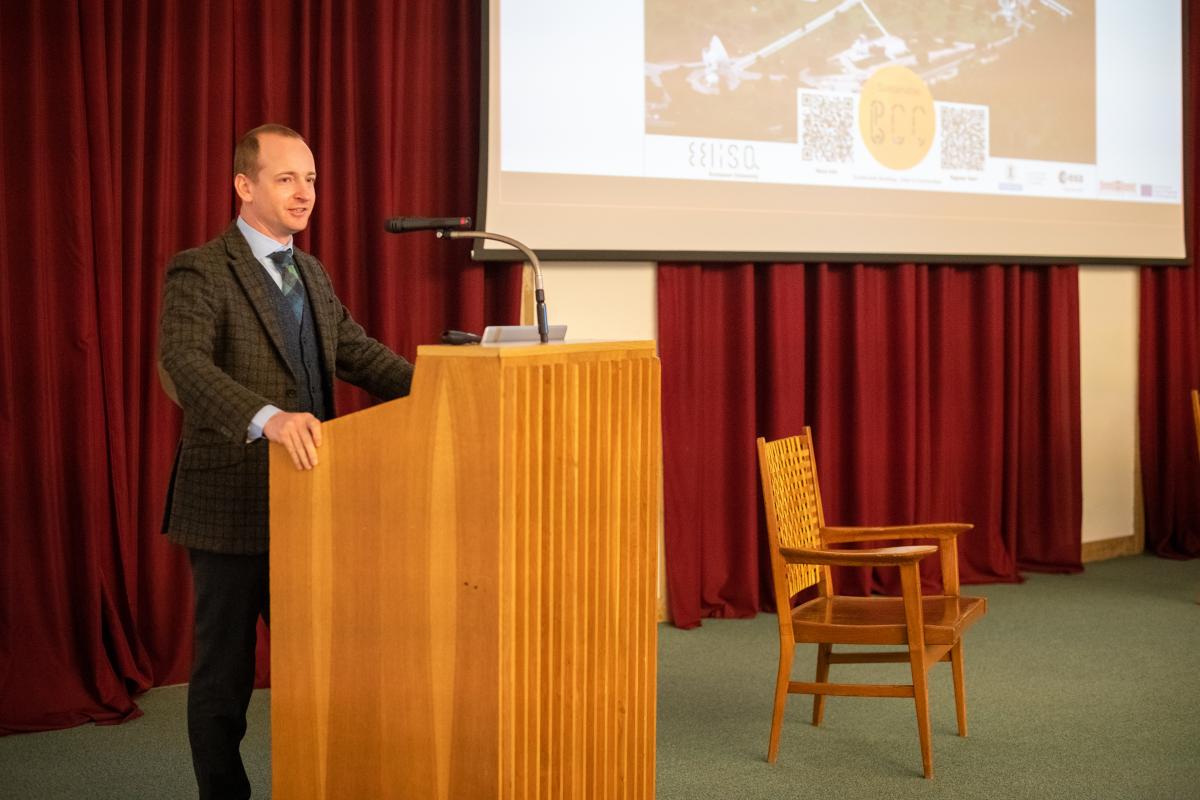
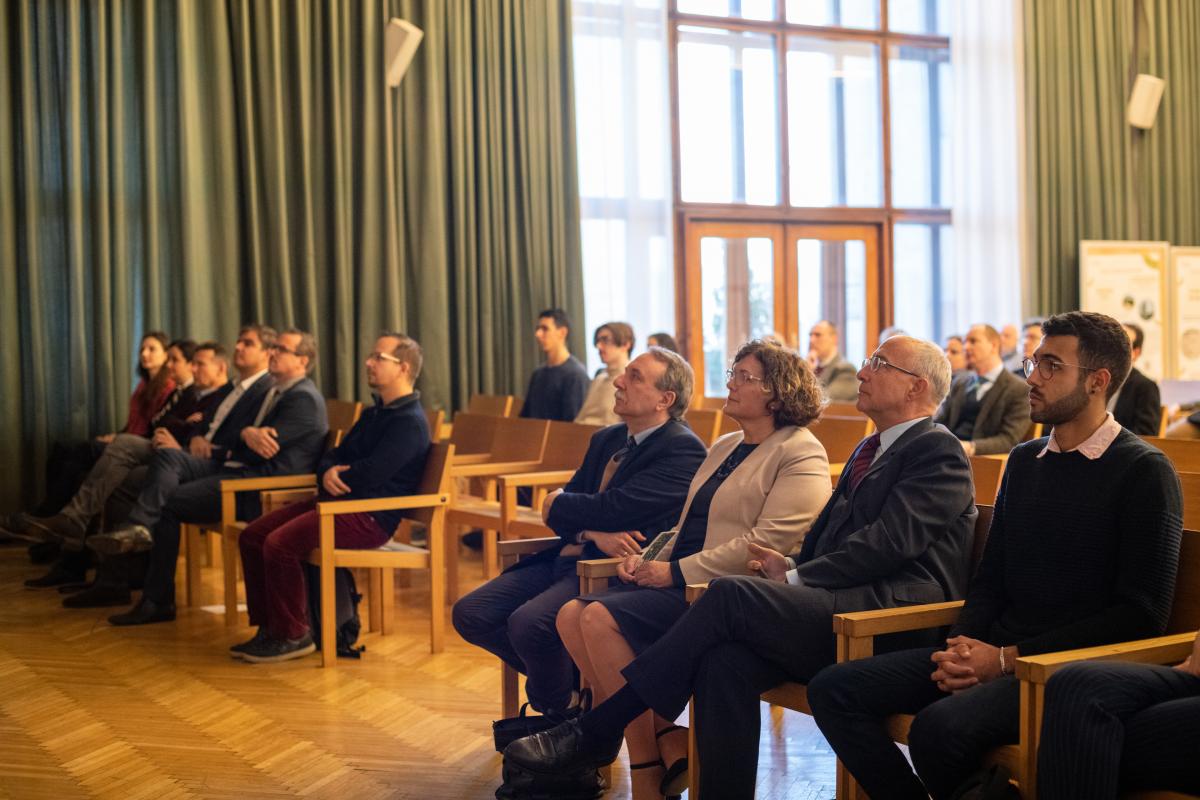
Balázs Bokor, assistant professor of the Department of Building Services and Process Engineering, Faculty of Mechanical Engineering, presented “Sustainable Buildings, Cities, and Communities” community. ‘The building sector accounts for 40% of energy consumption, thus, there are significant savings to be made in this area. That is why it is important, also within EELISA, to educate young people at international level. Universidad Politécnica de Madrid (UPM) has a lot of experience and advances in this field. ‘In January 2023, three students from the Faculty of Mechanical Engineering, the Faculty of Architecture and the Faculty of Civil Engineering and I participated in an interdisciplinary brainstorming event in Spain on the renovation of the Bauhaus building of the European Space Agency,’ said Balázs Bokor.
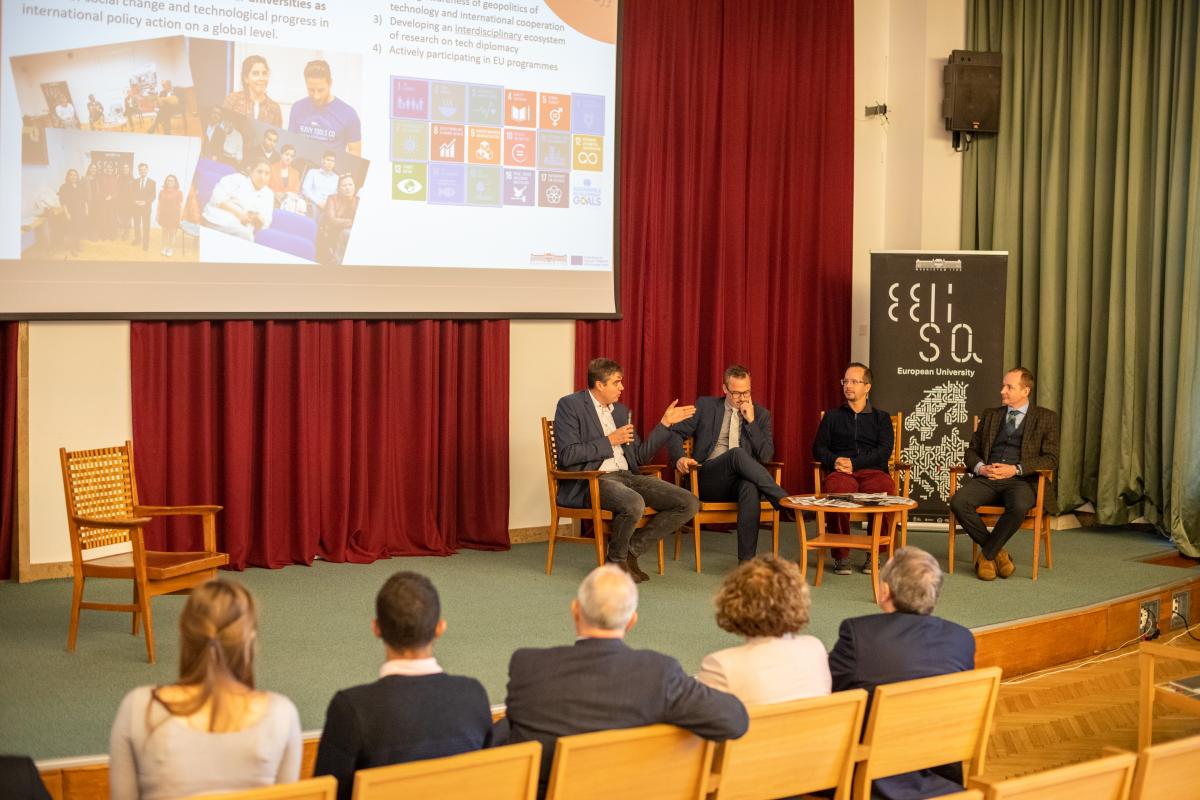
Tamás Lovas, associate professor of the Faculty of Civil Engineering, has been involved in the work of EELISA from the very beginning. ‘Looking at what competences a European engineer needs in labour market today, we can find that 7 or 8 out of the 10 most needed are non-technical. The strength of the BME is that we have an excellent Faculty of Economic and Social Sciences to whom we can turn for help in developing such competences. At the Faculty of Civil Engineering, we have created a new facultative course, “European Engineering Projectwork”, focusing on other than technical-engineering competences. The first person I contacted was Gyula Zilahy, who was pleased to accept the invitation and help the students with preparing their business model. We received a startup funding from FIEK. In the summer of 2023, we participated with 24 BME students in the hackathon of the EELISA “Sustainable Buildings, Cities, and Communities” community in Madrid where all winning teams included BME students. At the end of January, with other EELISA partners, we are going to submit an application on historical bridges’ visualisation in VR for education and tourism. One of the great advantages of EELISA is that we have a better chance of winning with a partner who is more experienced in writing proposals,’ said Tamás Lovas.
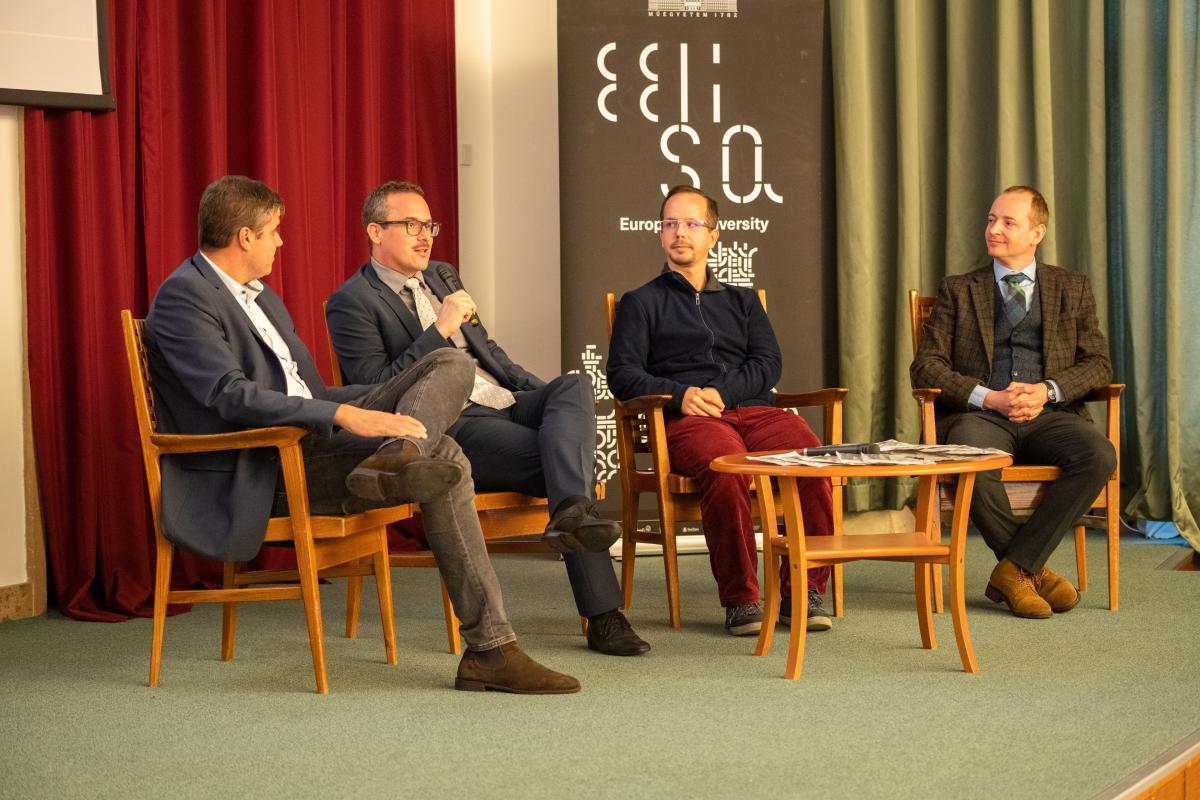
The “Tech Diplomacy & International Cooperation” community was introduced to the audience by Balázs Vince Nagy, associate professor of the Department of Mechatronics Optics and Mechanical Informatics, Faculty of Mechanical Engineering. An important objective of the community is to develop an ecosystem for tech diplomacy and research in international cooperation, which includes both public and private actors to strengthen and enhance the role of EELISA universities on national and international platforms. ‘Through continuous work and holding courses in our community of more than 100 members, we want to do research in technological responsibility and use the scientific advances in education. The research community needs to be reminded again and again that we need to consider the future impact of our new scientific advances. In achieving this, interdisciplinarity and internationalism play an important role’, said Balázs Vince Nagy, who was elected president of the European Society for Engineering Education in September 2023, and will also hold the position of EELISA Chair in the alliance for the next two years.
| ‘For me, EELISA is a fun team mostly about working together, thinking together and achieving common goals. When we learned that, with the support of the European Union, we could continue working together for yet another four years, we had the idea that we should definitely make this visible through a university-level programme. We could finally meet, talk, get to know each other and each other’s activities and research field even better. The Kick-off programme also made possible to share experiences and present the results achieved so far, as well as to have informal conversations and personal meetings, which are often lacking. Events like this are also highly valuable from a professional point of view, as personal meetings make our everyday work more efficient and effective,’ said Eszter Éva Tóth, née Mischl, EELISA coordinator, the main organiser of the event. |
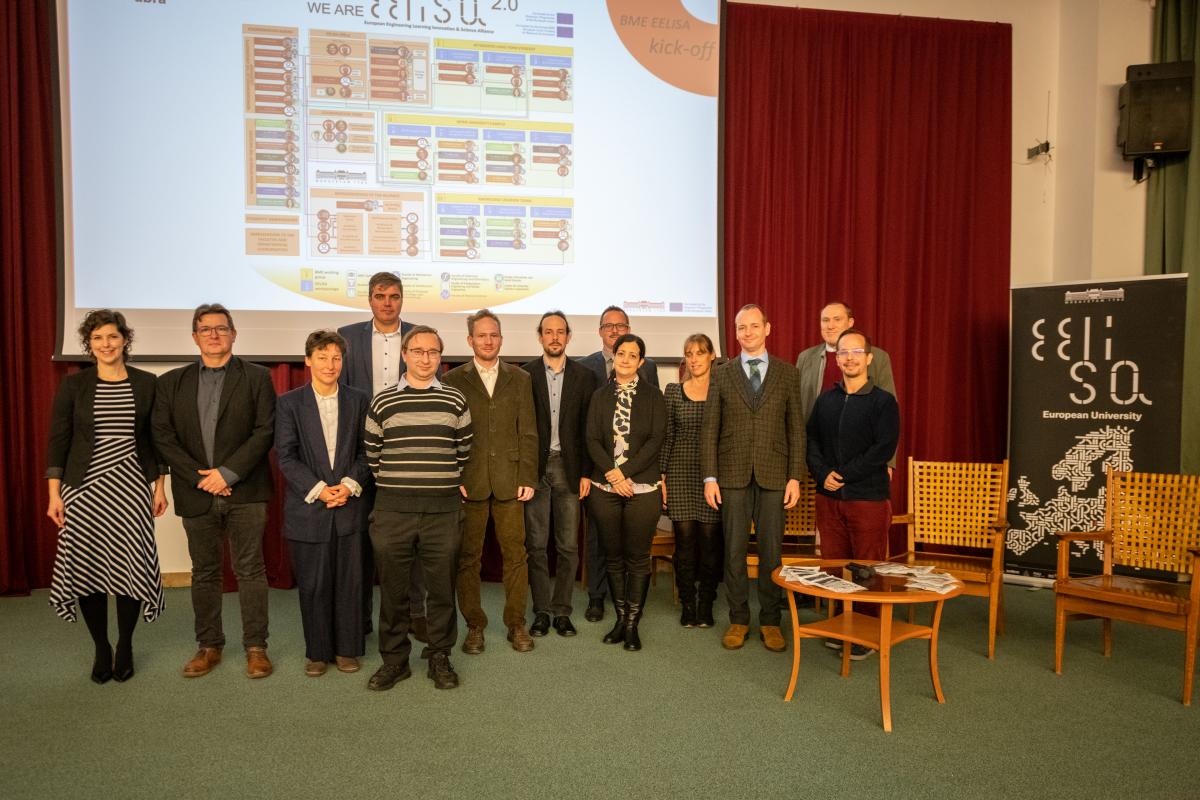
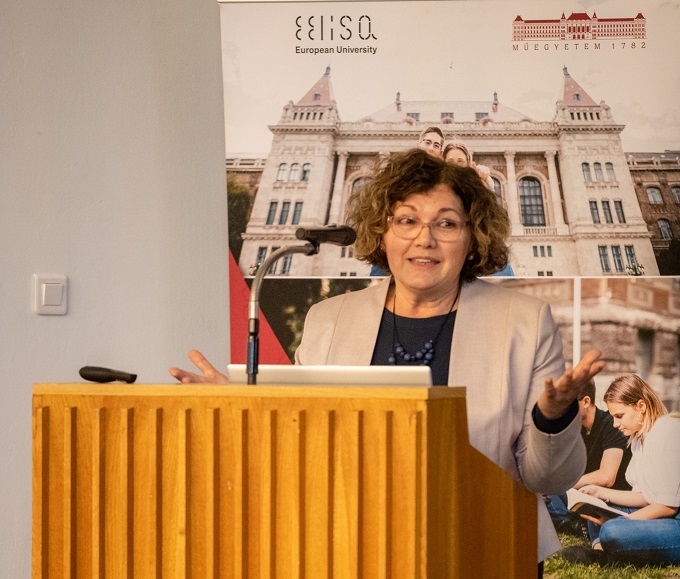
In her closing speech, Emília Koczka, née Csiszár, vice-rector for international affairs, said that she was certain that BME’s membership in EELISA improves BME’s competitiveness not only in Europe but across the globe promoting the development of its resources and the achievement of its internationalisation goals. In the next four years, in addition to our project duties, our most important job is to convince our colleagues that there are a multitude of opportunities to join the EELISA family. I wish that we continue to enjoy working together just as we have until now,’ said the vice-rector in conclusion of the event.
